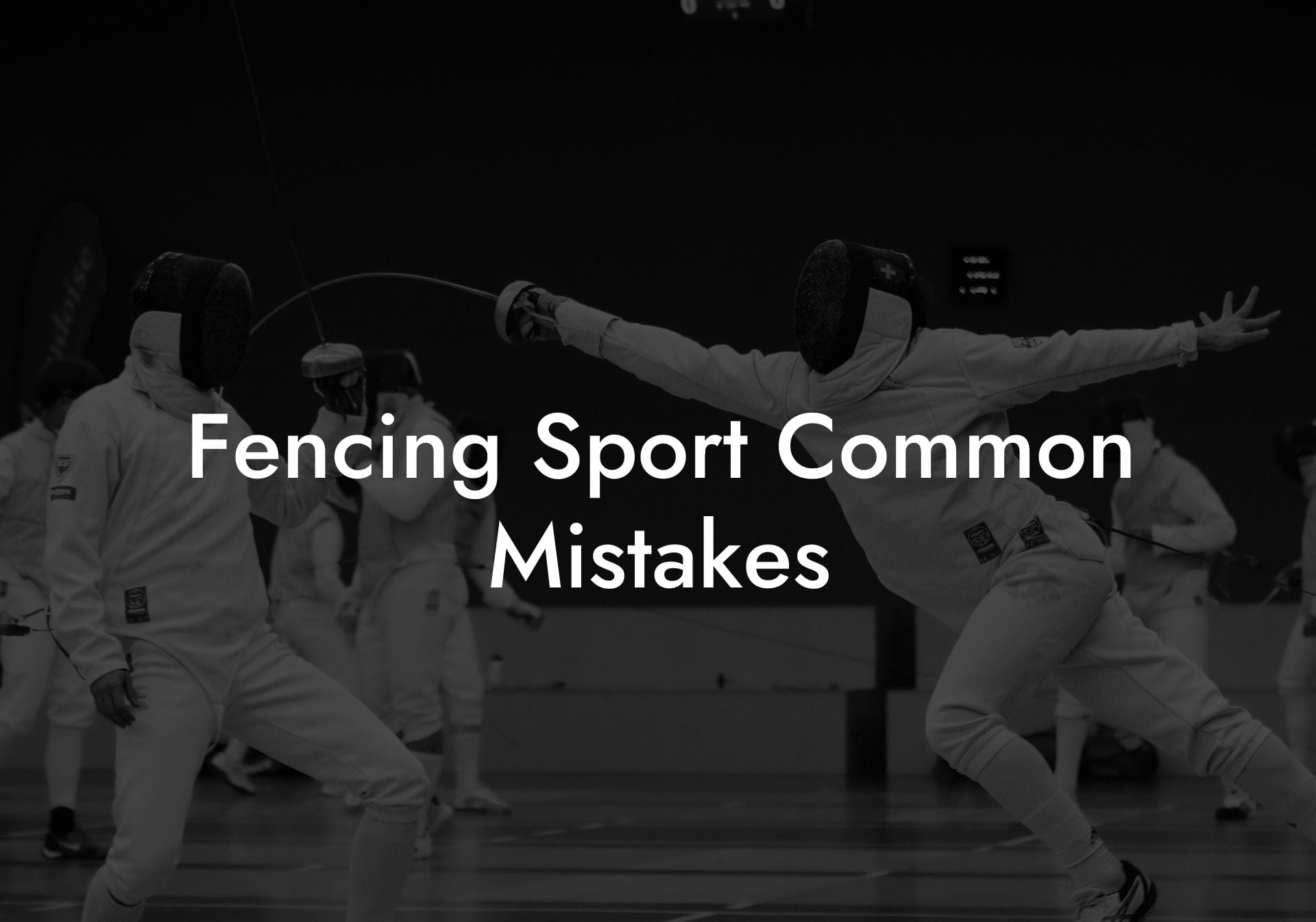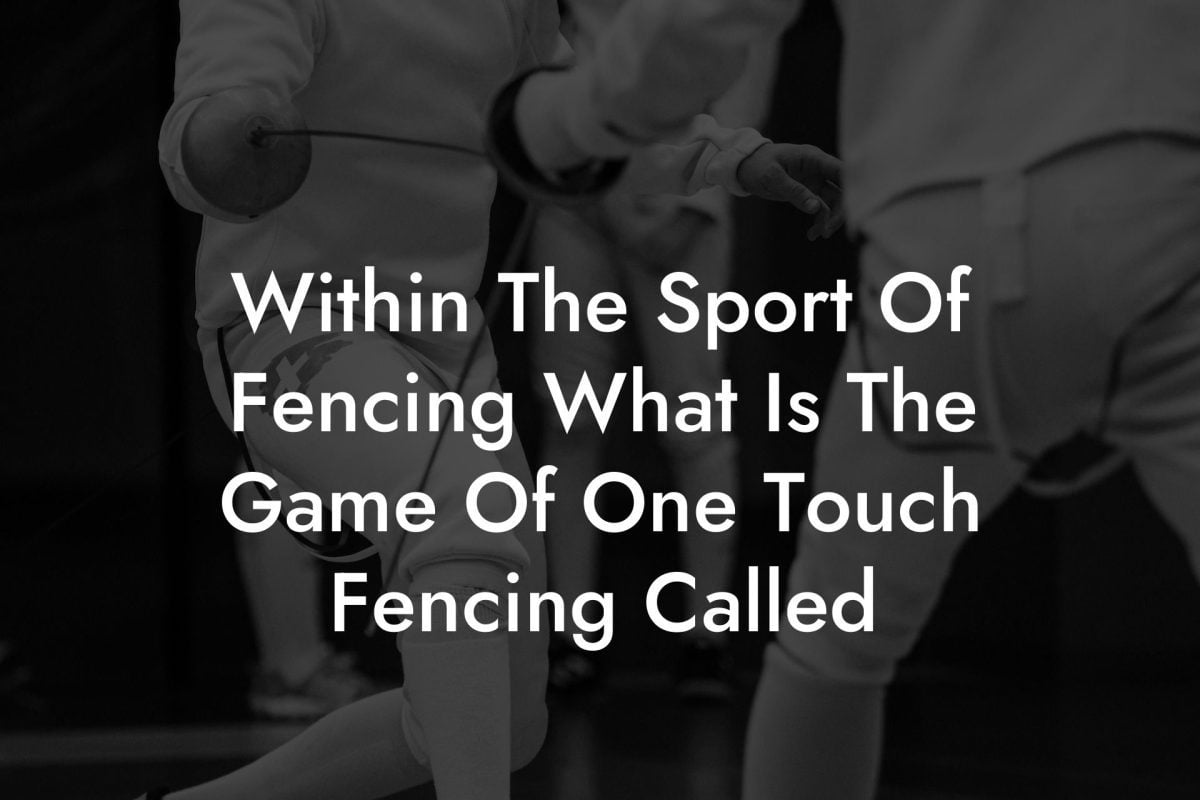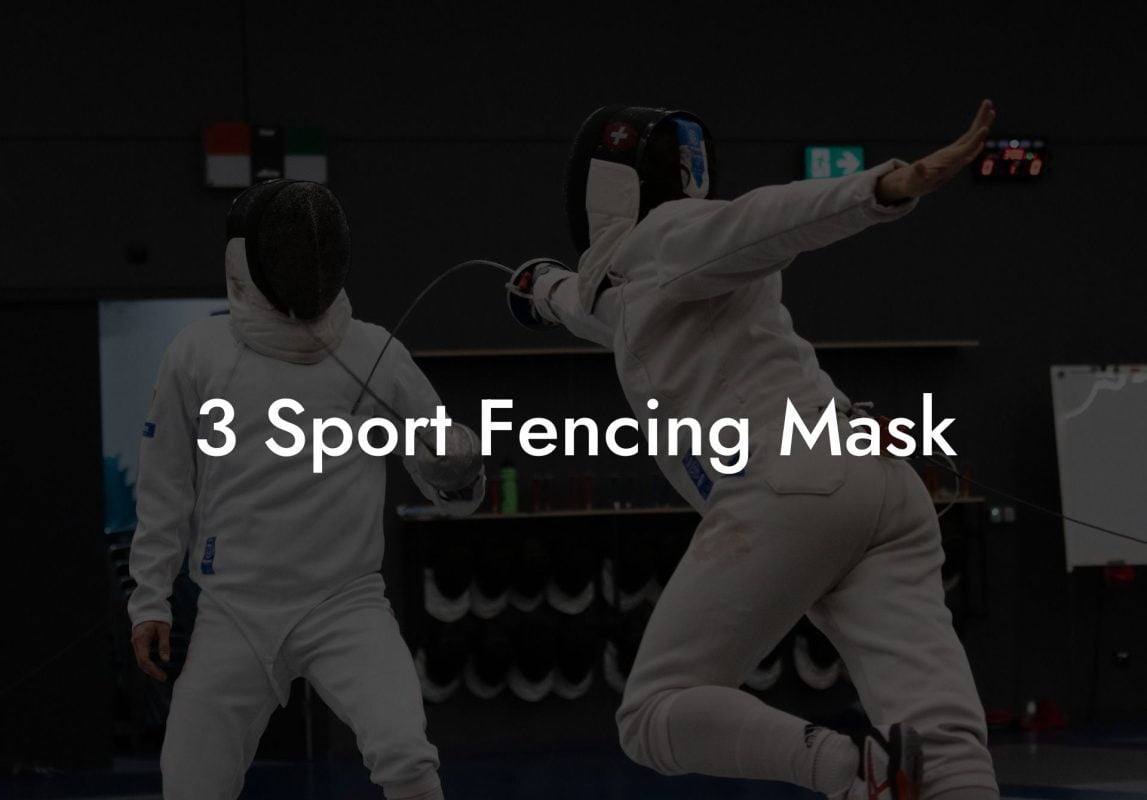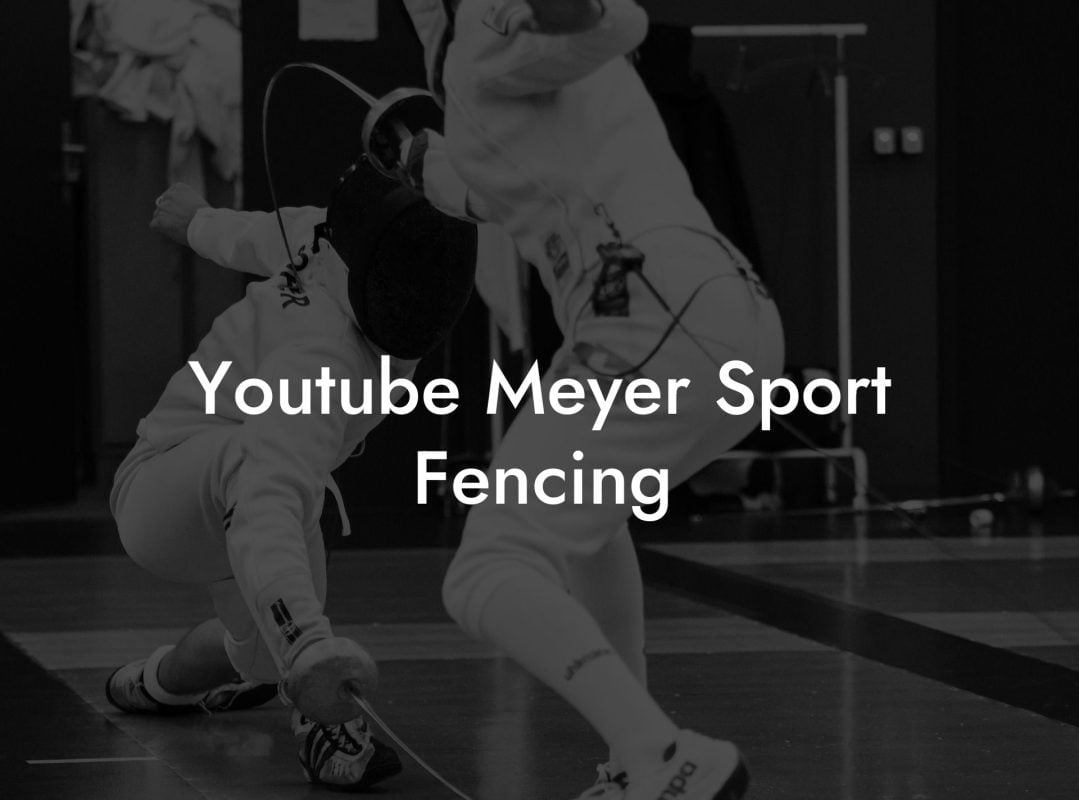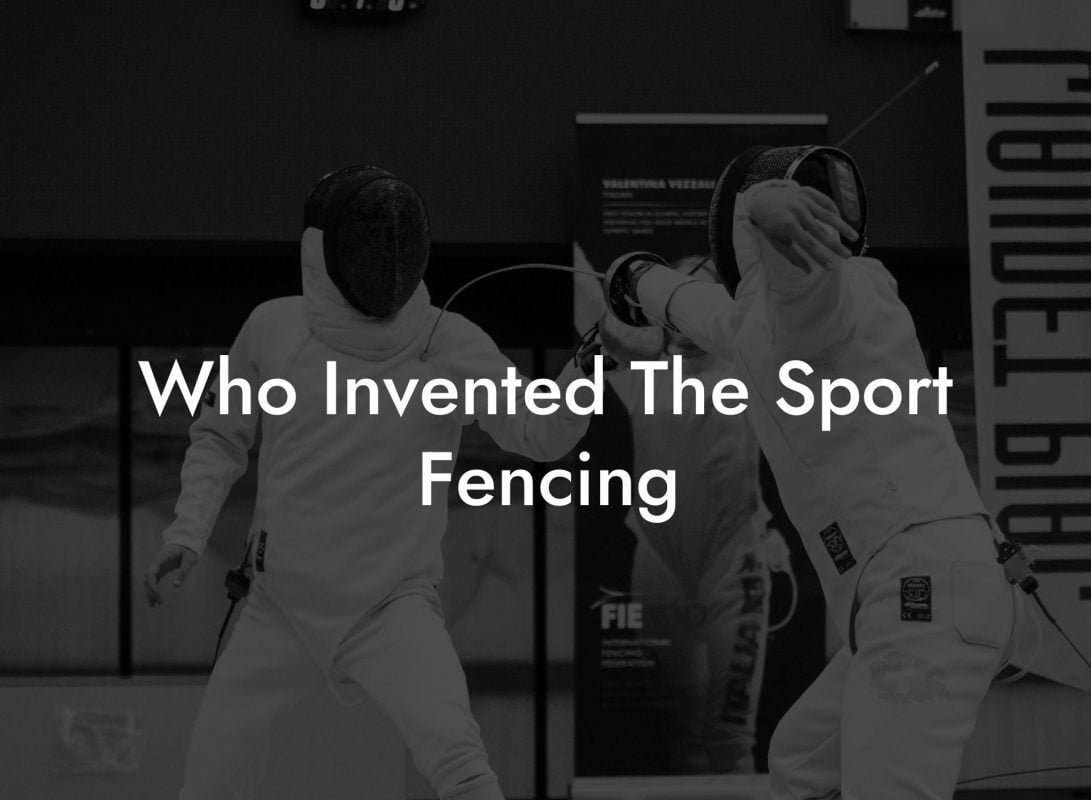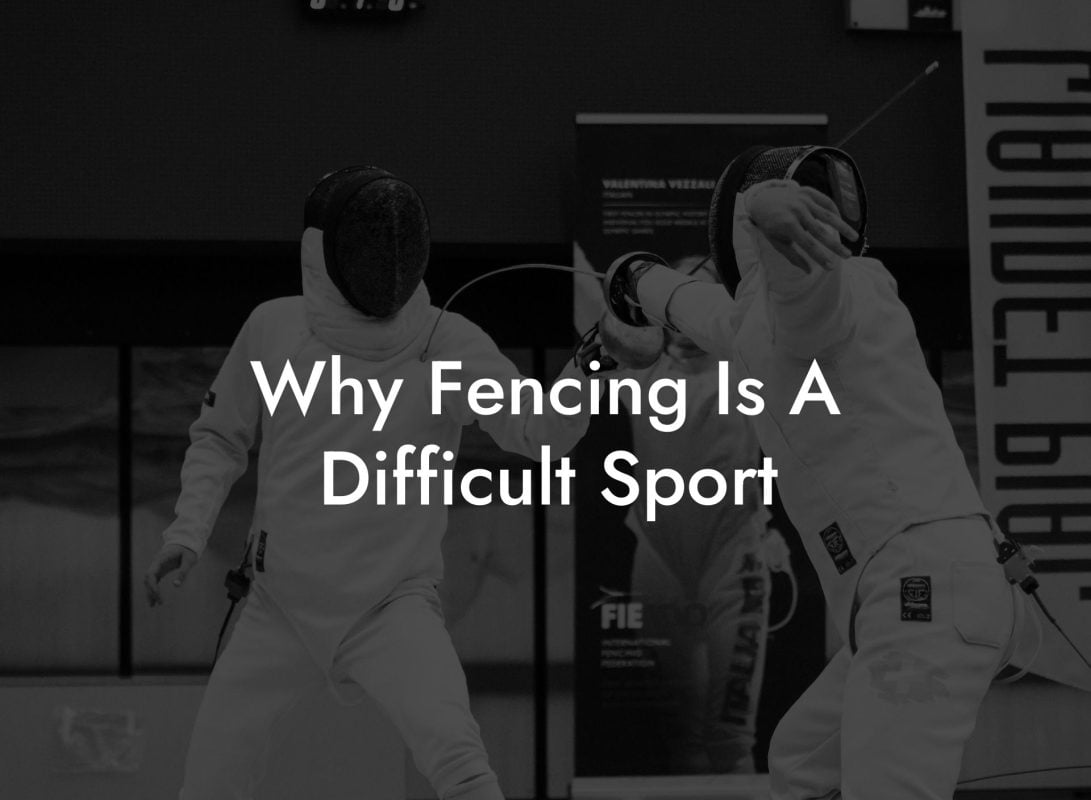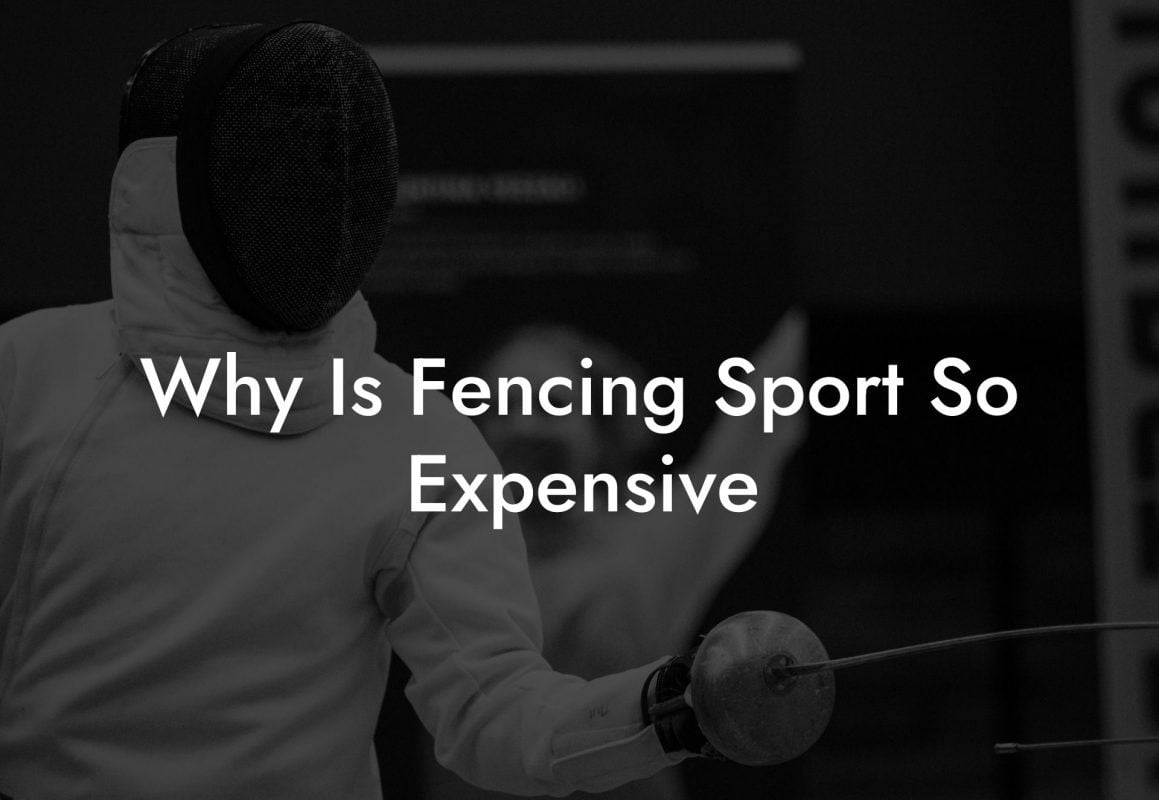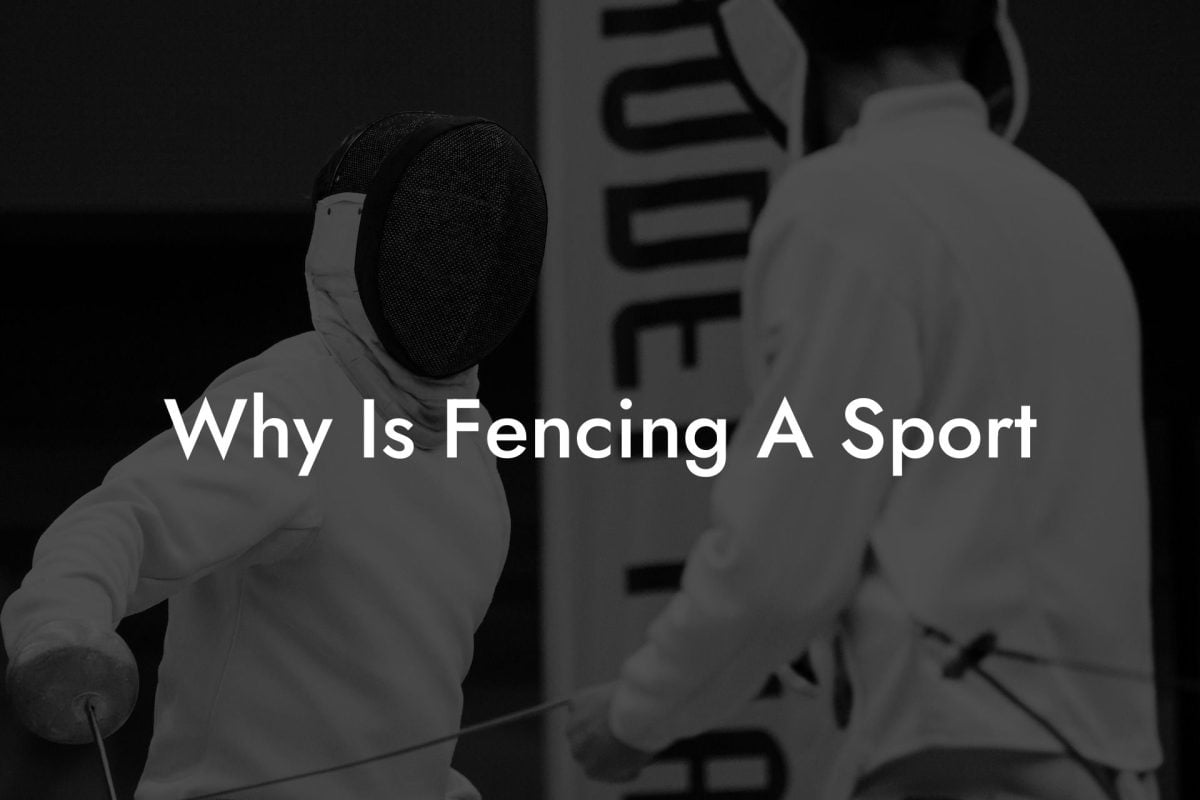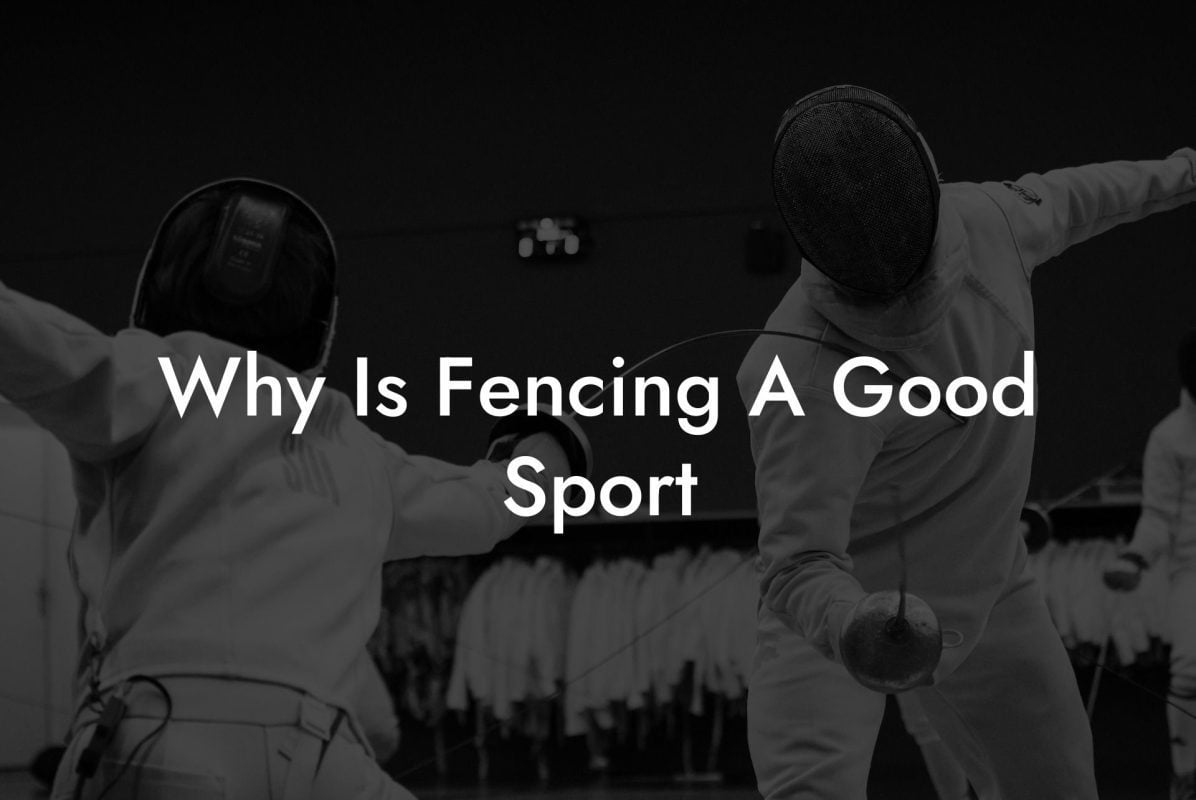If you're new to the world of fencing, or even if you've been fencing for a while, it's not uncommon to make some mistakes along the way. Luckily, these mistakes offer valuable opportunities to learn and improve. In this blog post, we'll explore some common fencing mistakes, provide explanations on why they happen, and offer helpful tips on how to avoid them to level up your skills in the sport.
1. Incorrect Stance and Footwork
Why it happens:
Fencing requires a unique, balanced stance and precise footwork that differs from most other sports. Beginners often struggle to maintain proper form, while experienced fencers may inadvertently slip into bad habits, causing them to be off-balance or out of position.
How to fix it:
- Practice the correct en garde stance, with your feet forming an L-shape and your knees slightly bent.
- Ensure your weight is evenly distributed, making it easier to step forward and backward while maintaining balance.
- Drill basic footwork exercises, like advancing, retreating, and lunging, focusing on smooth movements and proper weight distribution.
2. Over-reliance on Strength
Why it happens:
It's not uncommon for beginners to believe that strength is the key to fencing success. While strength can play a role, relying too much on brute force can lead to poor technique, wasted energy, and potential injuries.
How to fix it:
- Focus on improving technique and precision, rather than trying to overpower opponents with force.
- Relax your grip on the weapon, allowing smoother and more controlled movements.
- Incorporate mindful practice and relaxation techniques to avoid unnecessary tension during training and competition.
3. Inefficient Blade Work
Why it happens:
Improper blade work often stems from a lack of experience or an overemphasis on flashy moves seen in movies or other fencers. This results in incorrect hand placement, imprecise movements, and a greater likelihood of missing the target entirely.
How to fix it:
- Take the time to learn fundamental blade work techniques and practice them diligently.
- Avoid unnecessary, complex movements that can hinder your accuracy and efficiency.
- Work with a coach or experienced fencing partner to receive feedback on your blade work and to make necessary adjustments.
4. Inadequate Mental Preparation
Why it happens:
Fencing is a highly strategic sport that requires mental focus and a strong game-plan. Many fencers, particularly at the beginner level, do not dedicate enough time to developing their mental skills and planning a strong strategy for each bout.
How to fix it:
- Develop pre-competition and pre-bout routines to get in the proper mindset and stay focused.
- Take time to analyze your opponents and devise a plan tailored to their strengths and weaknesses.
- Work on your tactical awareness and decision making during practice, so it becomes second nature in competition.
Fencing Sport Common Mistakes Example
Imagine you're fencing against an opponent who keeps managing to score touches on you. Rather than becoming increasingly frustrated and resorting to brute force, take a step back and analyze the situation. Are you making a mistake in your footwork, leaving yourself vulnerable to attack? Is your blade work imprecise or overly complex, leading to missed opportunities? Or maybe you haven't been strategic enough in your approach?
Use the tips above to address the areas where you may be making mistakes, and you'll be amazed at how much your fencing performance can improve.
Fencing Sport Common Mistakes Frequently Asked Questions
What are some common mistakes made by beginner fencers?
Beginners often make mistakes like improper footwork, neglecting defense in favor of attack, or not fully understanding the rules of the weapon they're using. Overcommitting to an attack and incorrect weapon grip are also frequent errors.
Why is proper footwork crucial in fencing?
Footwork provides the foundation for every move in fencing. Poor footwork can hinder movement, making it difficult to attack effectively or defend against an opponent's advances.
How does overcommitting to an attack become a mistake?
Overcommitting can leave a fencer vulnerable to counterattacks. If an attack is not executed with balance and control, it can be easy for an opponent to exploit the opening and score a point.
What is the significance of understanding one’s weapon fully?
Each fencing weapon has its own set of rules, target areas, and strategies. Not fully understanding the weapon can lead to fouls, missed opportunities, or being easily countered by an opponent.
Why is the correct weapon grip important?
An improper grip can reduce a fencer's control over the weapon, making movements less precise. It can also lead to fatigue and strain on the hand and wrist over time.
How can rushing in fencing be a disadvantage?
Rushing can make a fencer's movements predictable and easy to counter. Fencing requires a balance of patience and speed, and rushing can upset this balance.
Are there common mistakes related to defensive techniques?
Yes, common defensive mistakes include not using the full range of parries, failing to anticipate an opponent's actions, and neglecting distance management.
Why is maintaining proper distance crucial in fencing?
Distance management ensures that a fencer remains in a position where they can effectively attack or defend. Misjudging distances can result in missed attacks or inadequate defense against an opponent's advances.
How does not warming up properly impact a fencer's performance?
Without a proper warm-up, fencers may not be as agile or responsive during a bout. Additionally, neglecting warm-ups increases the risk of injuries.
Are there mistakes related to the mental aspect of fencing?
Certainly. Underestimating opponents, getting easily frustrated, or being overly aggressive can impact a fencer's strategic approach and decision-making during a bout.
How can one avoid making these common mistakes?
Regular practice, feedback from experienced coaches, and analyzing one’s own bouts are crucial steps in recognizing and correcting common mistakes.
Do even experienced fencers make mistakes?
Absolutely. Even seasoned fencers can have lapses or make errors, especially when facing unpredictable opponents. Continuous learning is an integral aspect of fencing.
How crucial is it to learn from mistakes in fencing?
Learning from mistakes is essential for growth in fencing. Each mistake provides insights into areas of improvement, allowing fencers to refine their techniques and strategies.
What role does stamina play, and what are the mistakes linked to it?
Stamina is vital for maintaining performance throughout a bout. Fencers who neglect endurance training may find themselves fatigued in longer matches, leading to slower reactions and increased mistakes.
How does equipment choice factor into common fencing mistakes?
Using ill-fitting or inappropriate equipment can hinder movement, reduce protection, and distract fencers during a bout. It's essential to choose gear that suits one's fencing style and physique.
Is over-reliance on a particular technique a mistake in fencing?
Relying heavily on one technique can make a fencer predictable. While having a signature move can be advantageous, versatility and adaptability are also key in fencing.
How important is it to analyze opponents, and what mistakes arise from neglecting this?
Understanding an opponent's strengths, weaknesses, and tendencies is crucial for strategy formulation. Neglecting this aspect can lead to ineffective attacks and defenses.
Do emotions play a part in common fencing mistakes?
Yes. Fencers who let emotions like frustration or overexcitement control them might make impulsive decisions or stray from their game plan.
How can fencers maintain focus and minimize mistakes during a bout?
Maintaining focus requires a mix of mental conditioning, experience, and confidence. Regular practice, mindfulness exercises, and match analyses can help fencers stay centered during bouts.
Are there any drills or exercises to specifically address and rectify common mistakes?
Definitely. There are drills designed to refine footwork, improve weapon control, enhance defensive techniques, and more. Experienced coaches often tailor drills to address individual fencer’s specific weaknesses.
Understanding and addressing common mistakes in fencing is a continuous journey. With dedication, practice, and the right guidance, fencers can hone their skills, minimize errors, and excel in this captivating sport.
In conclusion, remember that mistakes are a natural part of the learning process in any sport, including fencing. By identifying common mistakes and working to correct them, you'll set yourself on the path to becoming a more skilled and confident fencer. We hope this guide has provided valuable insights to help you improve your fencing game. Don't forget to share this article with fellow fencers or anyone interested in the sport and explore other guides on Anchorage Fencing Club.

